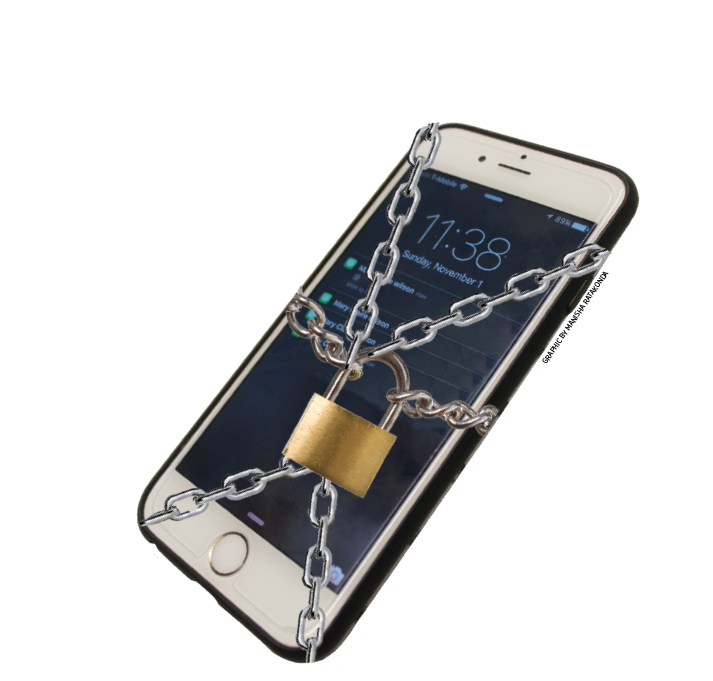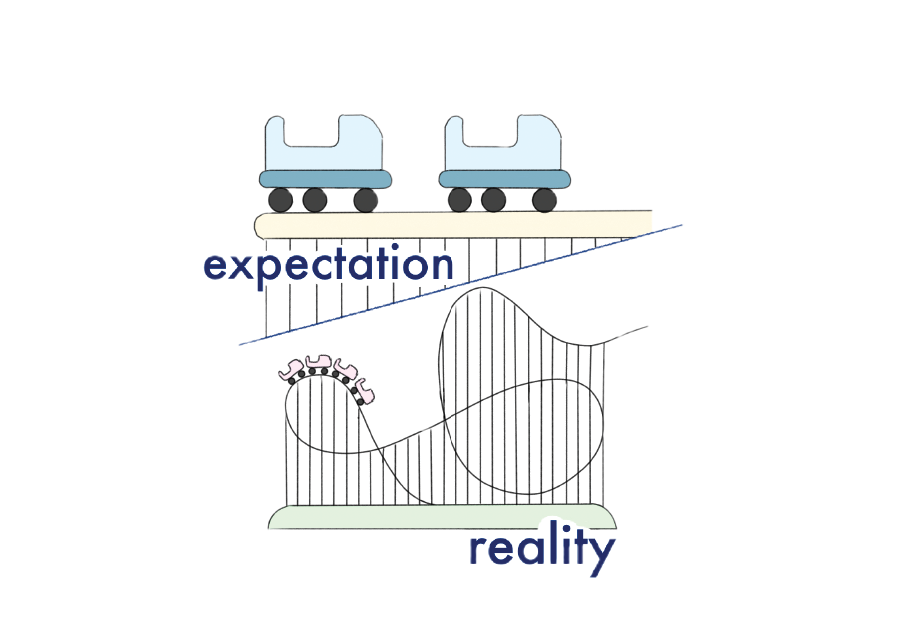A few weeks ago, Freedom from Chemical Dependency speakers came to Hockaday and asked underclassmen if they thought of seniors as role models. “No,” they said. “They always have their faces in their phones.”
This is certainly not how I want to be remembered, so I took a challenge and put my iPhone away for five days. What you are about to read is everything I learned from this experience.
First of all, phones make life easier in so many ways. They are our alarms, our cameras and our instant access to all things, so yes, they pretty much are the best thing since sliced bread. Secondly, when you have a phone, you are never really alone. The two minutes you have to spare in your day will no doubt be used to respond to a text or to check social media. Maybe we love our phones because they keep us from being lonely. When life gets tough, we can live vicariously through the lives of our Facebook friends.
Without my iPhone, I missed the daily pop-up reminders for meetings and appointments. The lack of reminders made me have to focus more on my daily schedule and write more things down. I also struggled to handle conference calls and conduct other forms of business because my parents disconnected our home’s landline years ago.
Attempting to communicate without my iPhone was challenging to say the least. If you saw me around campus carrying around my laptop, then you can imagine how much I relied on my email. I sent emails to communicate with my parents, my friends and any group assignment partners. I struggled to communicate with friends who do not attend Hockaday because I do not have a rolodex with the emails of everyone in my life. A social life without a phone is incredibly limited.
But not having an iPhone was not always negative. One day last week, I went into Einstein’s to get a bagel before school and found myself actually paying attention to the people around me because I was not staring at my phone. I was impressed by how patient and friendly the cashier was with each customer. I had been in Einstein’s many times, but had failed to ever pay enough attention to the staff to recognize their genuine, friendly attitudes. I presume that is just one of the many pieces of life that I miss while I scroll through my iPhone.
While I was away from my iPhone for five days, I received roughly 300 text messages. Only about 30 of them were important. It is amazing how much you can miss in a week, but few of these things are truly important. I thought that I was doing a great job with this five day challenge until I realized that my presence was required on an important conference call later that night. I had no phone to use and for the first time in forever, I wished that I had a home phone. I frantically typed an email to my mom asking her to come home early so that I could borrow her phone for the call. Wow, what a hassle, but thank goodness she read my email in time. She drove home quickly and I barely dialed into the call on time. That should have been much easier.
When I walk through the halls and see someone smiling at their phone, who am I to judge if they are using their phone too much? Honestly, there is a balance between engaging in meaningful conversations in the present and engaging in important conversations through technology. Some individuals communicate better through the written word than they do in a face-to-face conversation. One way is not better than the other; effective communication is the important part and speedy communication is always preferred.
In the modern age of technology, the world expects things quickly. For example, all students must respond to Hockaday related emails within 24 hours of receiving them.
Nowadays, individuals are expected to constantly be plugged into the world, email and news. The reality is that we need our phones to be successful in today’s educational world. This will not change as we transition into the business world.
Phones are here to stay. Before you criticize my peers and me, check your phone because you may be missing out on some pretty special relationships. This is the reality of our lives and our future. The expectations forced upon our generation are tremendous because we are expected to be informed, involved and connected constantly. Our lives have less down-time than any of the lives of our predecessors. As I receive a text, I can be instantly expected to be a friend, a colleague, a mentor, a counselor or even a shoulder to cry on.
Perhaps our phones are intricate parts of our lives and our eyes are often on the screen, but that it is OK. I agree, phones do not need to be an active participant at every family dinner or outing with friends. Perhaps my generation cares for people through text messages and kind birthday posts on social media, but that is equally meaningful as a friendly hug or other caring gestures. Welcome to the 21st century: it is a quick-paced and technology-driven place, home to the most caring people I know.
Commentaries are the expressed opinion of the author and do not necessarily reflect that of The Fourcast staff, its adviser or any member of the Hockaday community.







